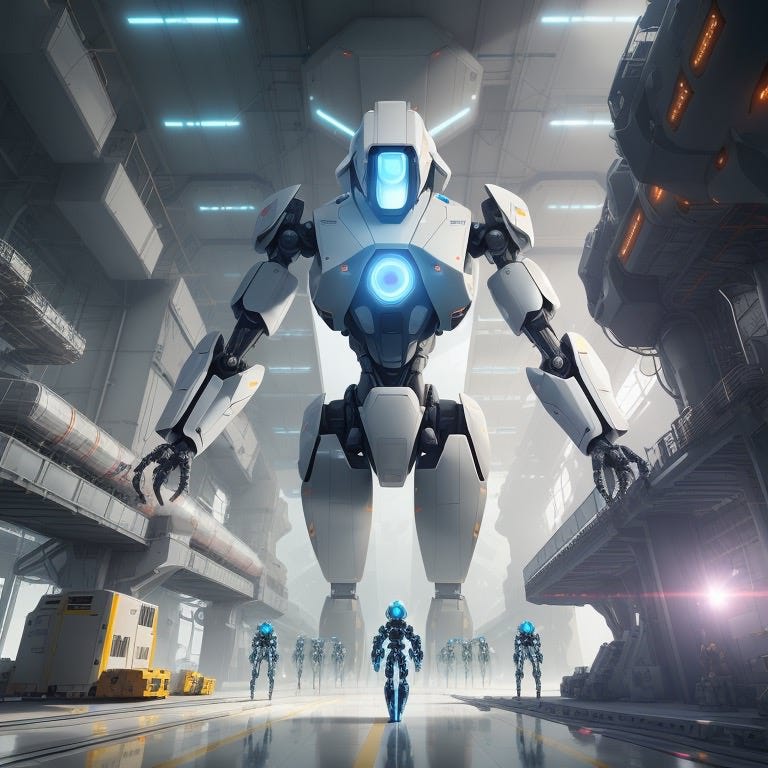AI Is About To Transform The Economy - How To Thrive In The Post-Singularity World
Key personal skills for weathering the AGI storm
1: Better Predictive Models Will Transform Financial Markets
Envision possessing a time machine, with the goal of amassing wealth. Each month, you send messages to your past self, detailing the stocks that will experience the greatest increase. As your wealth multiplies, you become a major player in the market, wielding influence with your ever-expanding portfolio.
But what is the effect of your actions on the economy? The stock market's primary purpose is to facilitate the flow of capital from investors to entrepreneurs in need of funding. By accurately predicting the most profitable stocks, you are identifying the businesses that will likely succeed, thus contributing to society's wealth by supporting ventures that cater to consumer needs.
While time machines remain a figment of our imagination, investors and entrepreneurs continually strive to predict profitable economic activities. With AI advancements, such as large-scale predictive analytics and machine learning algorithms, the efficiency of resource allocation can be significantly improved, leading to an increase in overall wealth. For example, a startup with a promising model will get funding much faster — and on the flip side, once a business model is worn out, valuations will rapidly crash. This effect will be magnified across economic sectors, leading to much higher market volatility across the board.
2: The AI-Sculpted New Economy: Entrepreneurs, Prompt Artists, and Artisans
Imagine the development of human-level AGI (artificial general intelligence), where humans can delegate mundane tasks to software. What would happen to the workforce? We could anticipate three primary job categories: entrepreneurs, prompt artists, and artisans. Entrepreneurs will collaborate with AI to generate innovative ideas, subsequently hiring lead prompt artists to bring these ideas to life. These lead prompt artists will manage AI-assisted projects, subcontracting specialized prompt artists as needed. Lastly, artisans cater to a niche market of consumers who prefer human-produced goods and services.
This trend is a continuation of historical patterns. Before the Industrial Revolution and the advent of labor-saving machines, most people were manual laborers. Today, in developed countries, we primarily instruct machines or collaborate with others who do. This increasing automation allows people to produce more output with minimal effort, integrating more of our cognitive processes into machines. Eventually, humans will only need to instruct automatons to produce the goods and services they consume.
The technological evolution progresses from tools that leverage human labor to machines that replace muscle power entirely, and finally, to automatons that assume human control.
3: Equipping Yourself for an AI-Driven Economy
We're on the cusp of an era marked by unprecedented change, with automation permeating every industry. To thrive in this landscape, you need the right skills, resources, and mindset. Here are some suggestions:
A: Prioritize creativity, adaptability, and self-direction. Deep expertise will lose importance compared to broad cross-functional heuristics. Focus on skills that demand uniquely human insights, such as emotional intelligence and complex problem-solving.
B: Safeguard your financial future with a diversified global investment portfolio. While predicting specific winners is impossible, the integration of AI is likely to spur dramatic economic growth. If existing portfolios survive, even a modest $1000 investment in a broad stock market could secure financial stability for life.
C: Embrace the rapid cultural evolution driven by technological advancements. Emerging trends, fueled by AI breakthroughs, will create new markets and industries, much like smartphones did in the past decade. Stay informed about the latest innovations and develop an open-minded approach to understanding lifestyle and identity choices that may be unimaginable today.
Conclusion:
As we stand on the precipice of a post-singularity world, it's imperative to equip ourselves with the skills, resources, and open-mindedness necessary to flourish. By cultivating creativity, and adaptability, making strategic investments, and embracing cultural acceptance, we can confidently navigate the AI-driven future and author our own success stories. Armed with research and intelligence, we'll be well-prepared for the challenges and opportunities that lie ahead.




